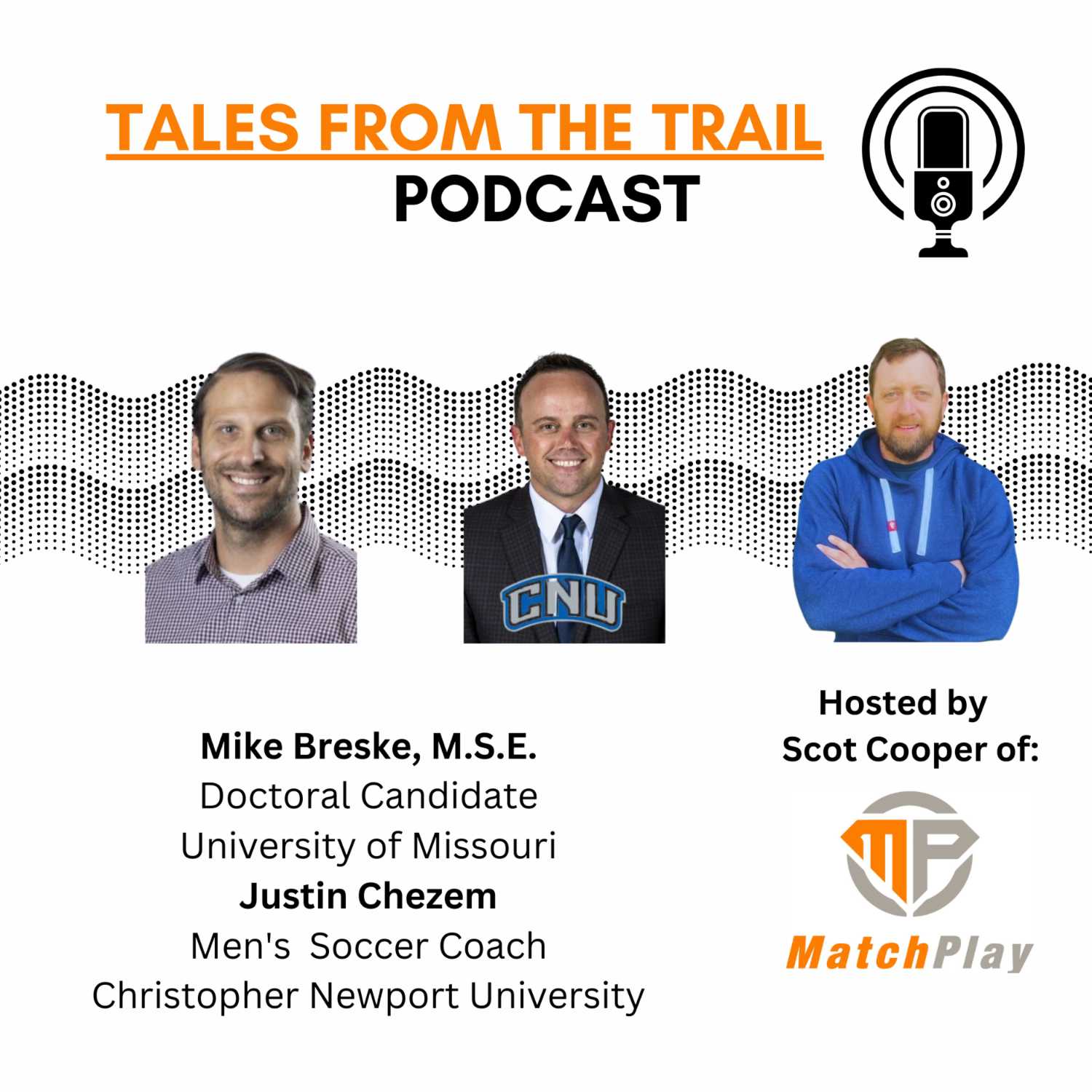18. The Intersection of Sport and Mental Health
- Author
- Scot Cooper
- Published
- Sun 06 Aug 2023
- Episode Link
- https://rss.com/podcasts/tales-from-the-trail-1/1066058
Justin Chezem (of Christopher Newport University Men’s Soccer) and I, welcome psychologist, Mike Breske who was also a former collegiate soccer player at Virginia Tech and Christopher Newport University. Mike just finished his internship with the University of Missouri Counseling Center for Student Health & Well-Being, and is also currently studying to earn his PhD in psychology. He currently has a role with the Stanford University athletic department to work with their sports psychologists. In this episode, we hear about his relevant and unique perspective, discussing the intersection of mental health, well-being and athletics. I hope you find the discussion helpful and interesting. Please share the podcast, subscribe, and send me your questions and feedback through matchplayrecruit.com.
Summary
The conversation covers various topics related to the intersection of mental health and college sports. Mike and Justin discuss their experiences as athletes and the challenges they faced. They also explore the role of sports psychology in helping athletes navigate mental health issues and enhance performance. The impact of social media and the COVID-19 pandemic on athletes' mental health is also discussed. The conversation emphasizes the importance of providing resources and support for athletes to develop coping skills and handle failure. Additionally, the role of parents in preparing athletes for the college experience is highlighted. The conversation explores the role of parents in supporting athletes, the importance of building trust with counselors, creating boundaries as a coach, the transition from performance enhancement to mental health, and understanding and respecting individual differences.
Takeaways
The mental health of college athletes is influenced by their performance and the pressure to succeed.
The field of sports psychology is evolving and focuses on both mental health and performance enhancement.
The use of social media and the COVID-19 pandemic have increased mental health challenges for college athletes.
Parents play a crucial role in supporting athletes' mental health and helping them develop coping skills.
Athletes should be prepared for the challenges and potential failures they may face in college sports. Parents play a crucial role in providing resources and support to athletes.
Building trust with counselors is essential for athletes to open up and seek help.
Coaches should create boundaries and separate the athlete's performance from their mental well-being.
Performance enhancement often leads to discussions about mental health.
Each athlete is unique and requires individualized support and understanding.
Chapters
00:00 Introduction and Reflecting on Playing Days
06:04 Recruiting and Transferring to CNU
08:02 Intersection of Mental Health and College Sports
11:44 The Role of Sports Psychology
21:57 The Impact of Social Media and the COVID-19 Pandemic
30:23 Addressing Old School Mentality and Developing Coping Skills
36:36 The Importance of Providing Resources for Dealing with Failure
44:17 The Role of Parents in Preparing Athletes for College
45:35 The Role of Parents in Supporting Athletes
48:44 The Importance of Building Trust with Counselors
51:38 Creating Boundaries as a Coach
54:12 The Transition from Performance Enhancement to Mental Health
55:08 Understanding and Respecting Individual Differences
